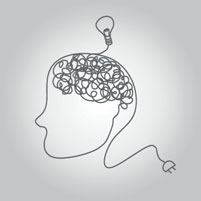Philosophy and the Real World
By Elizabeth Jeffries

Philosophy is much more than late night chats about right and wrong. At Carnegie Mellon University, it uses research and technology to make an impact in the complex world we live in.
Over the past three decades, the Department of Philosophy has made great strides in many areas, including ethics, medicine and neuroscience. As the department celebrates its thirtieth anniversary on October 16th and 17th, it is also celebrating its impressive contributions to the world outside of campus.
One of the most exciting “real-world” aspects of the department is the Ethics, History, & Public Policy (EHPP) Senior Capstone Project. Seniors in the EHPP track work in project teams on a significant social issue. Last spring, the project focused on the use of drones in American cities and how they impact day-to-day life. Upon inspection, Pittsburgh Mayor Bill Peduto stated that the findings would be a feasible addition to the City of Pittsburgh.
Indeed, alumni of the department have gone on to a diverse set of careers. Andrea Hamilton Weinstein (DC’07) was an EHPP major and said that her education proved very helpful in her career as an attorney. She now works in the intellectual property, media and technology group at Hogan Lovells.
“My time in the department not only gave me experience in appreciating perspective, but it also taught me how to find holes in a particular narrative or system of thought,” Weinstein said. “Just as importantly, the Department of Philosophy taught me that my ability to recognize perspectives and finding these holes could have value.”
Alex John London, professor of philosophy and director of the Center for Ethics and Policy, focuses on bioethics and ethical theory. London has written extensively on issues relating to the ethical conduct of scientific studies involving human participants.
In relation to this research, London is a member of a working group for the Council for International Organizations of Medical Sciences (CIOMS). CIOMS revises the standards for the conducting of research when human participants are involved. The CIOMS guidelines are one of the oldest and most respected guidance documents, and are widely used by international organizations and governments in low and middle-income countries to regulate biomedical research. London is in part responsible for developing a complete revision of the ethical standards in research in an international context.
This exemplifies how philosophy is not a single subject matter. At CMU, the Department of Philosophy connects to the real world in a unique way by asking foundational questions that then flow into other areas of study. David Danks, head of the department, explained that the faculty teach what people expect from a philosophy track, but with a more expansive and productive view.
“The people in this department are amazing. From our first year students, coming up with innovative, complicated ideas to the most senior member of the faculty who continue to build on a lifetime of work, the department creates such a broad spectrum of philosophy,” Danks said.
London added, “Undergraduates have preconceived notions about philosophy, but the department proves that through unique, real-world research and courses, we are doing philosophy that makes a difference. The great figures in philosophy were trying to make contributions to the foundations of science, ethics and other areas of inquiry. They wanted their work to be relevant to people outside of philosophy.”
He continued, “Other departments are often content to study those figures, and that is important. Our vision, however, is more ambitious; it is to emulate the great philosophers, not simply by studying their work, but by taking up their project and producing work that makes a contribution beyond the halls of philosophy.”
Because of this unique, broad approach on philosophy, the department has produced successful alumni and research that impacts the real world in a positive way over the last thirty years. Through innovative research, engaged students and faculty, and ambitious technology, the department will continue to evolve and grow philosophically as it relates to our world today.
Learn more about the Department of Philosophy and its thirtieth anniversary celebration.